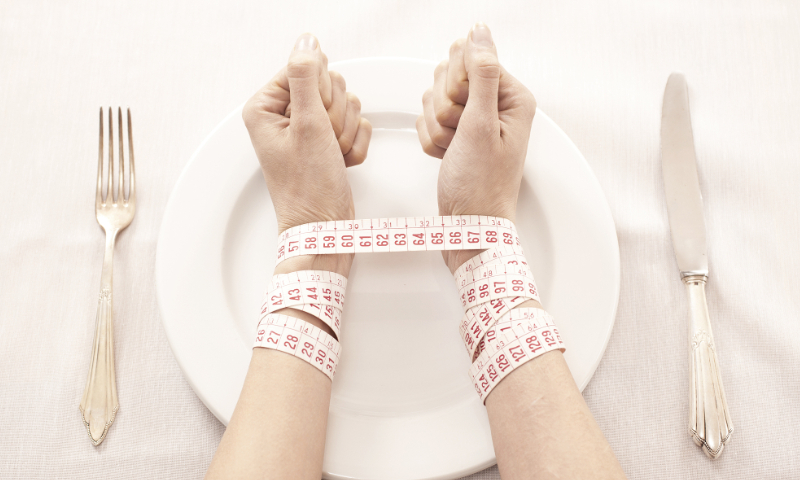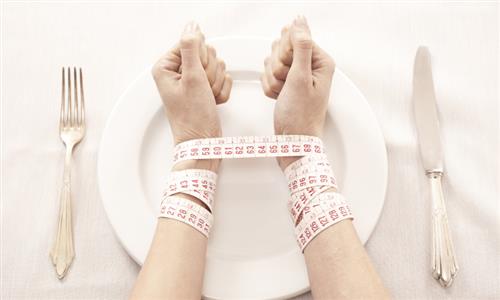Hainan airline's strict weight restriction triggers discussion about adoration of skinny body

Photo: VCG
China's Hainan airline's strict weight restriction on female flight attendants triggered more than the legal questions behind such rules. It also sparked heated discussion among netizens over body shaming, with some urging employers and the society to shake off "twisted'' limitations and traditional standards of worshiping of "skinny, white and young."
Thankfully, many women are standing up to the obsession. Most are trying to show that beauty is mostly about being healthy and confident.
China's Hainan Airlines, a five-star airline rated by Skytrax, has been under hot water in recent days after introducing a strict weight control policy for its female flight attendants. The policy mandates immediate grounding of staff members if their weight exceeds the "standard limit" by 10 percent.
The debate over the incident still dominates Chinese social media. There are lawyers who believe such behavior violates the law, as the reason for such punishment is not legally approved.
Three female flight attendants from different airline companies, who declined to be named, also told the Global Times that strict weight restrictions are prevalent in this industry.
"We don't have written policies saying that employees will be fired for being 'fat,' but several of my colleagues, whose weight exceeded the 'limit,' had a meeting with human resources, who told them to lose weight in a rather veiled manner," said one flight attendant.
Under the post of Hainan airline controversy online, most debates seemed to focus on the toxic standard of overwhelming worship and pursuit of skinny body. "This mirrored exactly the society's twisted beauty standard of thinking the skinner the prettier. What defines a good flight attendant is quality of her service, not her weight," one netizen commented.
Female flight attendants is not the only group that has to face strict weight restrictions. In March this year, a company's employment notice for receptionist also triggered criticism because of its requirement on candidates' figure. Not only the company stated clearly its accepted scope of weight, it also listed standards of waistline, hipline and thigh circumference.
"Are you looking for a receptionist or a supermodel?" asked one netizen.
Skinny is beauty?
Skinny aesthetic has dominated the mainstream of beauty standard in China for a long time. In 2021, when Brandy Melville, an Italian clothing brand targeting teenage girls and young women, opened a shop in Beijing, the first shop in Chinese mainland, "BM style" dressing, which consists of corp tops, tank tops and skirts, became trendy in China. Many girls posted picture of themselves in BM style online, proud of being skinny enough to be jammed into such clothes.
In May this year, this style has met with backlash from consumers claiming clothes made for women are abnormally small to wear.
This discussion was led by Zhang Xinyu, a female actor who weighs 51 kg with the height of 169 cm. She said on social media in May that "there's a brand I liked so much. But I can barely try on their XL size clothes." Even without pointing out clearly what brand she meant, fans inferred Zhang was talking about BM.
Later, netizens began to weigh in. One said, "I weigh 80 kilograms, but I cannot fit in a XS sized skirt." Hashtag "You are not qualified to buy clothes nowadays if you weigh 50 kilograms" became trendy on China's Twitter-like platform Sina Weibo, as it resonated with netizens.
Those clothes are made to cater for the current popular trend, Jiang Han, a researcher from Beijing-based think tank Pangoal Institution said. He pointed out that people's twisted pursuit of being skinny is also related to mass media's promotion. "You can see heavily underweight models and stars on media. Their presence has reinforced the standard that "skinny is beauty." But what people ignore is that this group is at high risk of eating disorder.
What the endorsements from Asian celebrities such as Jennie from Blackpink and Ouyang Nana, alongside BM's Instagram models, and the chart in question, all have in common is promoting a skinny aesthetic that works for the only size the brand offers — which is small.
What makes things worse is that on social media platforms, you can see "normal people" being super skinny and have supermodel bodies, they share unhealthy diet plans, which aren't scientifically proven, said a 29-year-old Beijing resident Han Zi (pseudonym). "We won't go after celebrities' skinny bodies. But peer pressure from ordinary people is huge."
In 2021,Wang Kui, a researcher from Institute of Psychology under the Chinese Academy of Sciences, conducted a survey with her team among Chinese youth's pursuit of skinny bodies. She found out that only 12.6 percent of female respondents were satisfied with their bodies; and an overwhelming 72.8 percent wished they could be skinner.
What's interesting, only 10.58 percent of the respondents are overweight by scientific standards.
Defying the standard
However, things are changing. With the definition of being healthy popularized, and growing independence and confidence among females, some are defying the traditional beauty standards.
A tanned, muscular blogger on Xiaohongshu, China's lifestyle sharing platform, named Gao Youhua constantly post pictures of herself doing outdoor activities, working out confidently in her "not traditionally appreciated" body.
Under every of her post, there's a hashtag "reject skinny, white and young." "I started this project after one day I posted a photo of myself cycling and some people commented that I looked fat, and others asked why I had tanned my skin because it looked 'so coarse,'" said Gao.
"After that I started to wonder, why are we stuck into this twisted standard? Every girl is different, we should not have a unified standard of beauty," said Gao, then she started posting those pictures trying to raise girls' awareness of loving what they are.
In May, a 15-year-old girl in Guangdong died after she tried to lose weight, to be more appealing for her crush. When she passed away, she weighed only 24.8 kilograms.
It is the latest case that fueled public's call for discard outmoded beauty standard. In a poll launched by a Chinese media, an overwhelming 80 percent admitted that such standard has exacerbated people's anxiety for body shaming.
"How long is this unified beauty standards going to dominate us. Girls remember, it doesn't matter whether you are thin, fat, white or not white, what matters is your health, and confidence," wrote a netizen.

